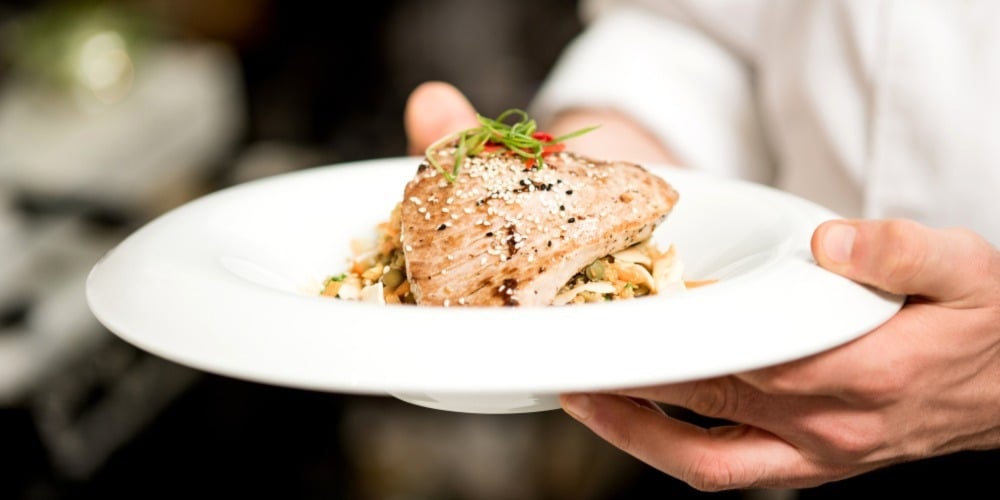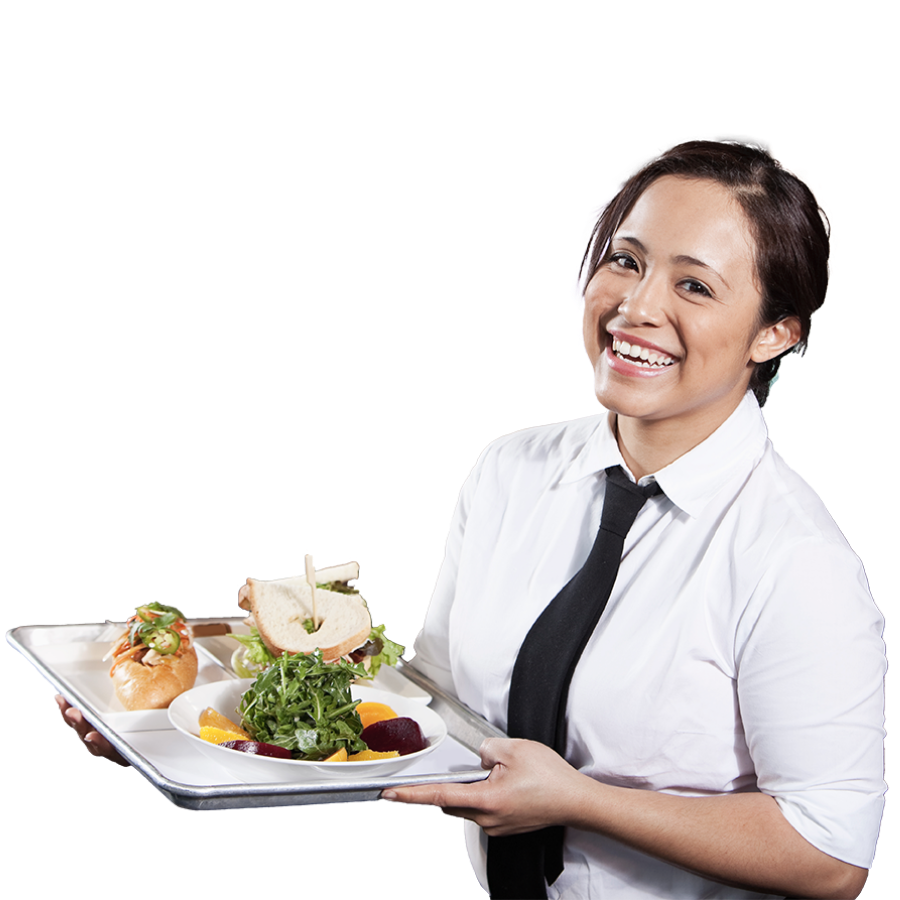In any food service business, be it a restaurant, a bar, or a hospital cafeteria, the employees handling food have many responsibilities, all of which are meant to ensure that the food being served is safe for consumption.
Whether you’re an experienced Food Handler, just starting out, or supervising food handling staff, it is just as important to understand the practices Food Handlers should avoid in order to keep food safe.
Here are five things a Food Handler should never do:
1. Don’t touch ready-to-eat food with bare hands
When working with ready-to-eat food, use serving utensils or tongs to place or arrange food on customers’ plates. Especially in fast-paced establishments like fast food restaurants, it may be tempting to reach out and quickly adjust that burger bun that's sliding off the plate, but you can introduce harmful bacteria to a meal, rendering it unsafe for consumption. It's not worth the risk.
2. Don't touch your face
Whether it’s to scratch a pesky itch on your nose or to tuck hair behind your ear that’s slipped from a hairnet, don't touch any part of your face when you're working with food. This includes your mouth, nose, eyes and ears. If needed, step away from the food preparation area, do what you need to do, and don’t return to food preparation until you’ve washed your hands.
3. Don’t improperly taste food
Tasting food as you go is often a part of a Food Handler’s job, but it’s how you taste the food that makes the difference when it comes to food safety. In order to prevent contamination, there are two things you should never do when tasting food:
- Don’t taste food with your fingers: We can’t stress this enough. Whether handling ready-to-eat food as we mentioned above, or tasting food in the middle of preparation, always avoid using your bare hands. Food that is touched with bare hands is at serious risk for contamination.
- Don’t re-use (a.k.a. double-dip) utensils used for tasting: Just like your hands are at risk for bacteria and other pathogens, dipping a utensil that you’ve put in your mouth back into a dish for a second taste is a guaranteed source of contamination.
If and when you need to taste food, the proper method is to obtain a clean utensil, ladle the food into a small dish and then remove both the dish and the utensil from the food preparation area so that you don't accidentally use either again.
4. Don’t smoke
What you do with your free time is up to you, but Food Handlers should not smoke while working with food. If you absolutely must smoke during your shift, do so well away from the food premises and wash your hands thoroughly before resuming your work duties.
5. Don't wipe away sweat using your hand, sleeve or apron
Commercial kitchens can get extremely hot, especially during a busy service. It would seem that wiping sweat away from your face is better than having it drip into the food you're preparing, but using your hand, sleeve or apron doesn't prevent dangerous bacteria from getting into the food. If you need to wipe sweat away, a better alternative than using your hands or anything on you is to use a cloth that won't be used for food handling.
Other bad habits Food Handlers should avoid
We’ve covered five of the most common - and treacherous - things Food Handlers shouldn’t do, but there are more where that came from. Here are a few other bad habits you may have seen in your food business or be guilty of yourself. Either way, as a Food Handler, you should avoid:
- Using a cloth intended for wiping down tables to clean up a spill on the floor
- Using glassware to scoop ice (this is especially important for bartenders)
- Storing packaged food items like single-serving creamers, butter, jam or peanut butter in your apron or pants pockets
These are behaviors that can contaminate food with disease-causing pathogens (e.g. bacteria, viruses), create injury hazards (e.g. broken glass), or allow items to spoil, making them unsafe for customers to consume.
Whether you’re just starting out as a Food Handler or have some experience under your belt, it’s never too early to learn the proper food safety procedures and behaviors. Food Handler training is the best way to learn what habits to avoid and what habits to build. For more information and to find a Food Handler Course in your state, visit our programs page today.

